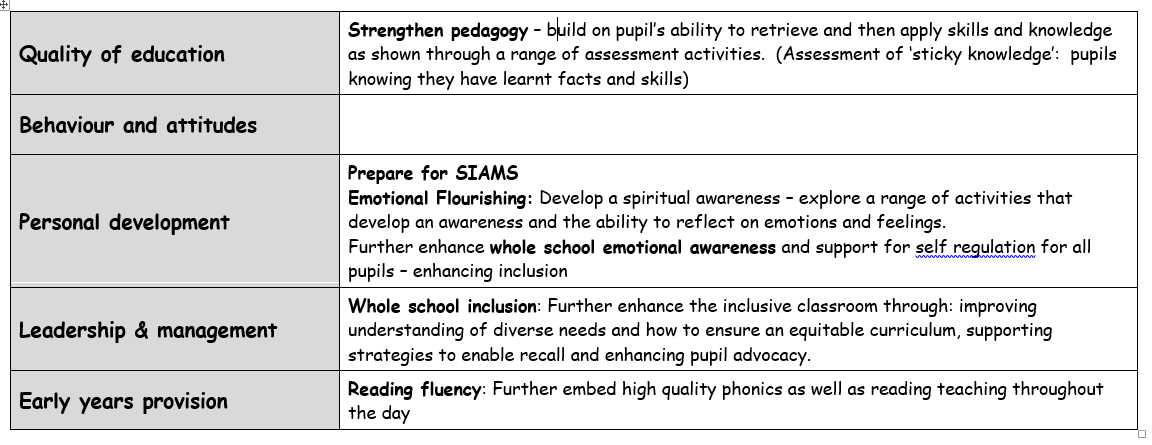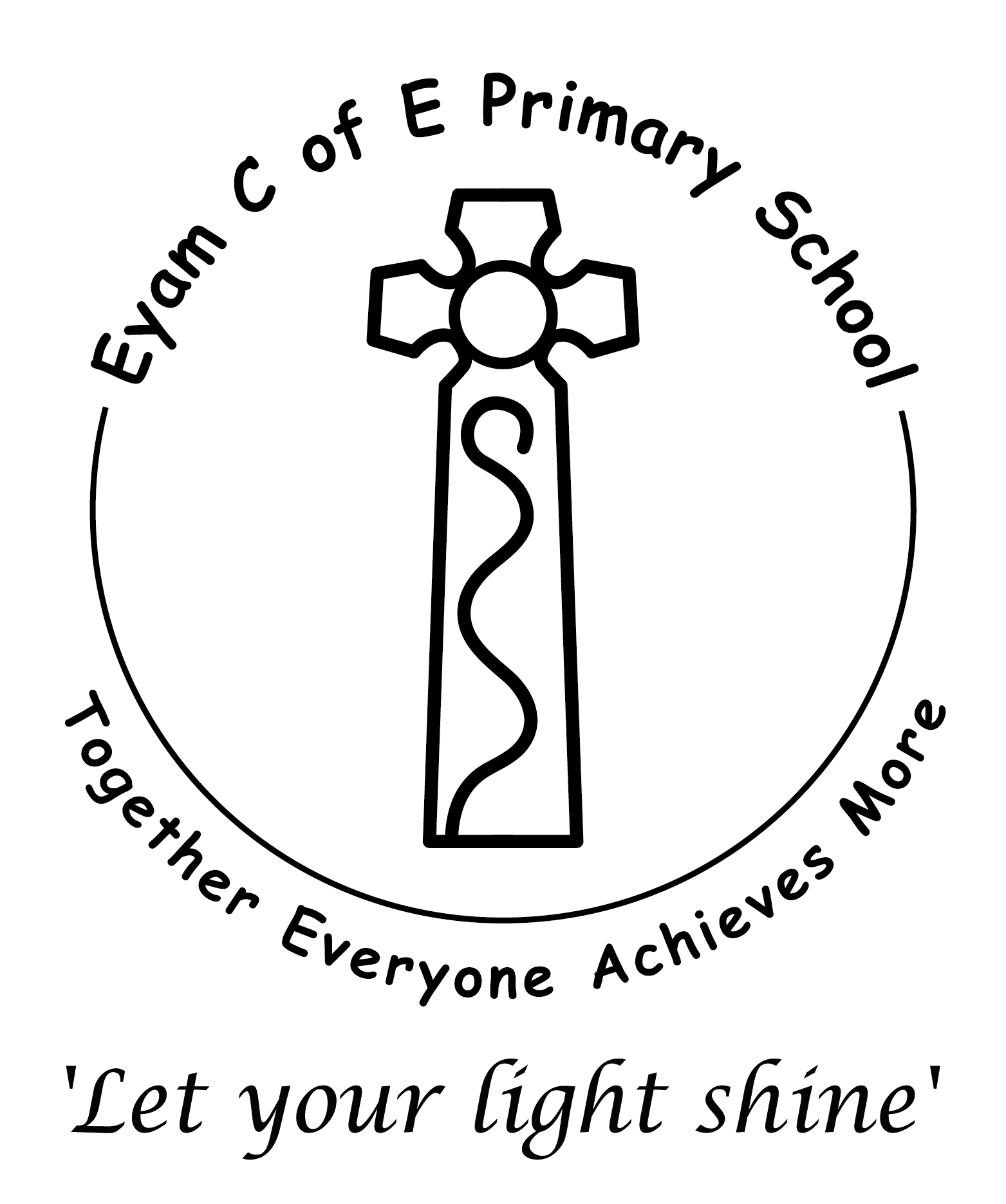School Improvement Plan and Self-Evaluation
The senior staff and Governors work together on a cycle of improvement which incorporates planned outcomes, action towards targets, monitoring and review of the impact and identification of new areas to develop.
On this page, you can access the School Self Evaluation (SEF) document and the School Improvement Plan (SIP). These documents are integral to the continuing development of the school and allow us to improve any areas that may be identified. The SEF and SIP are tools that the governing body uses frequently as they strive for improvement.
The SES document is a straightforward summary of what the school has done, the effects it has had, and what it plans to do moving forward. It describes the most critical areas for long- and short-term improvement.
The SIP details the approaches and resources required to achieve these key priorities, following the principles the school has defined. These documents are attached below.
School improvement 2024-2025

Focus for School improvement 2023-2024

- Strengthen pedagogy – build on the pupil’s ability to verbalise Meta Cognition: plan learning to focus on Higher Order Thinking and develop synthesis and analysis.
- Mental well-being: advocacy for staff and pupils, develop staff confidence and enhance reflective practice.
- Through effective leadership, develop inclusive curriculum provision and focus on closing gaps.
These were the 3 key areas on the SIP from 2022-2023
- Improving reading as a key skill in learning (developing high quality reading skills and using reading to learn).
- Metacognitive thinking is embedded as a learning strategy.
- Improving opportunity through closing gaps and supporting mental wellbeing.
Updated School Self Evaluation document 2023-2024
Monitoring outcomes
At Eyam there is a commitment to self-monitoring and evaluation. It is linked to the development and continuity of good practice within the school. Monitoring and evaluation is to be closely associated to meeting the overall aims and objectives of the school.
Statement of Definition
Monitoring is about analysing actual practice not assumed practice.
Evaluation is about checking the effectiveness and impact of a process, task or outcome.
The process of whole school Self Evaluation is an essential tool which enables staff, pupils and Governors to improve the quality of teaching and learning.
It must be remembered that we all monitor and evaluate at different times but much of this is an implicit process. Sometimes it is done sub-consciously.
To be effective Monitoring and Evaluation must be:-
- built into plans
- focused
- systematic
- manageable
- purposeful
- participative
- valid
- measured against success criteria
- cost effective
- used to maintain and develop good practice.
Here are some ways we monitor the impact of the SIP:
Governors:
- termly learning walks – these may be focussed on gathering pupil voice through a series of questions and reflective dialogue
- termly meetings and sub-committee meetings
- attendance at parents evenings, theme weeks, formal events, outings etc.
- feedback and meetings with subject co-ordinators and staff
- participation in monitoring discussions with the LEA such as PM for Headteacher
- Meetings to analyse data
- Involvement in book scrutiny
Head Teacher working in conjunction with all staff as a teaching team:
- observation and feedback of teaching and learning
- performance management
- planning reviews
- Pupil voice – reflective dialogues about how and why and what we are learning
- analysis of standardised tests and targets
- pupil progress meetings
- IEP and provision map analysis with TAs and Class Teacher
- Analysis of attendance and reasons for absence
- learning/book scrutiny
- Tracking of fluency targets
- inclusion – tracking specific groups of children
- mentoring ECT’s/ Students.
- feedback from adults marking and perfect purple comments back to staff
- use of meta-language to plan and review learning and analysis of most effective strategies
Parents
- initial parent consultation with teachers about their child
- staff reporting progress of child to parent
- spellings, reading, homework sheets
- attending parents evenings
- accompanying pupils on trips
- helping in the classroom
- annual parent questionnaire
- supporting PTA functions.
